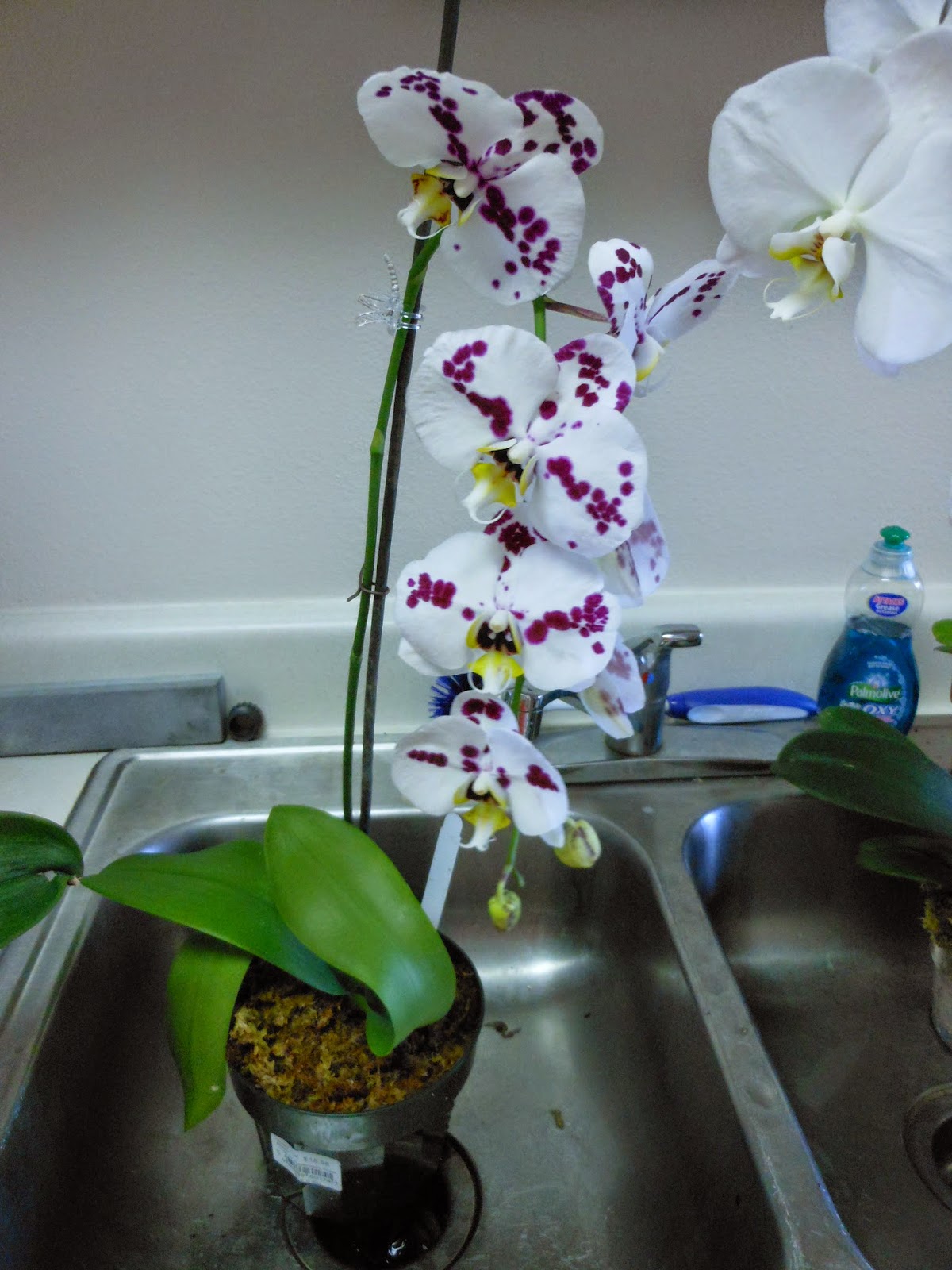Let's first explain the root structure of an orchid. Shown above is an orchid with roots as thick as my pinkie finger. Covering the roots is a protective layer called the "velamen," which is a spongy layering that absorbs and stores water for the orchid. This is why it is good to let the planting medium dry out between waterings. If the medium does not dry out this protective velamen will rot and the root inside will eventually die.
Above is a picture of a root that has rotted. The string-like structure in the center of the velamen is the actual orchid root. If you are trimming your orchid's roots when re-potting you will probably see some of this exposed root. Have a look and get to know your plant's anatomy.
Okay, so now that we know a little more about the orchid's roots, let's get down to the matter of watering. Take your orchid and place it in your sink and give it a good soak. That is, turn your faucet on and water it until you have water coming out the bottom. Then make sure to let it drain really well! Right now your orchid's velamen is sucking up all the water it needs. If your orchid's pot sits on a saucer make sure that you drain any existing water (from your previous watering) out of it so that the orchid does not end up sitting in water! Of course, if you used bottled water or pre-mixed fertilized water feel free to use that instead of tap-water.
Be sure to let your orchid dry out. There are two different potting mediums for pheleanopsis orchids: moss and bark. Bark you want to water pretty much once a week with this method. Orchids planted in the moss medium can go every ten days to two weeks between watering. This is due to the fact that the moss absorbs and retains water more easily than bark does. I recommend using bark and I re-pot all of my orchids in bark. Just don't worry if your plant feels a little dry between watering. If you have a clear pot and can see the roots you'll be able to watch them shrink and expand.
~Happy Planting!





No comments:
Post a Comment